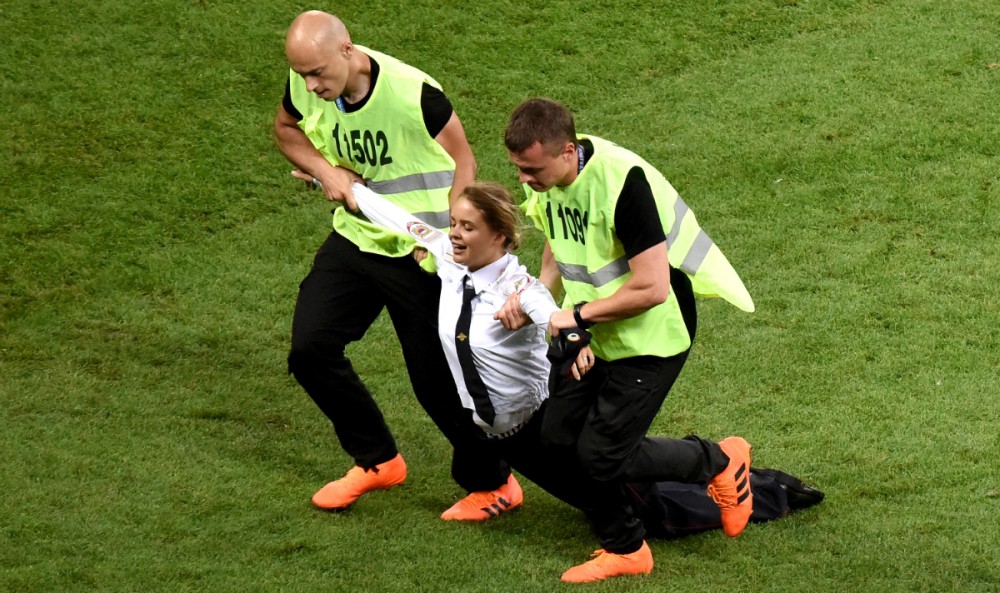A small, courageous protest of Putin
At the World Cup, Pussy Riot opened a window on authoritarianism.

During the World Cup championship match between France and Croatia last month, four members of the protest performance group Pussy Riot ran onto the field dressed as police officers. On social media the group spelled out the substance of its protest: it demanded that the Russian government free political prisoners, stop putting people in jail for their “likes” on social media, end illegal arrests at protests, allow political competition, and stop fabricating criminal cases.
The moment was only a blip on the facade of normality that the regime of Vladimir Putin carefully maintained during the monthlong soccer tournament. In preparation for the World Cup, which drew millions of visitors and was televised around the world, Russia invested vast sums to present a polished image to the world, outlawing non-soccer-related gatherings to make sure the image of political contentment was also maintained. The Pussy Riot protest offered a tiny disruption of the regime, opening a window on the authoritarian government’s mechanism of repression.
The Putin regime has a record of imprisoning journalists and opposition leaders—and sometimes assassinating them. In his 15 years in power, Putin has gained near total control of the media. He has crushed his political rivals and turned the legislature and judiciary into rubber stamps for his policies. Earlier this year he won another six-year term as president in an election most Western observers regarded as a charade: there were charges of ballot-stuffing, and a major opposition candidate, Alexei Navalny, was barred from being on the ballot. Lately there is talk in Russia of Putin being named leader for life. Not incidentally, there is also the continuing matter of Russian efforts to manipulate U.S. elections.





